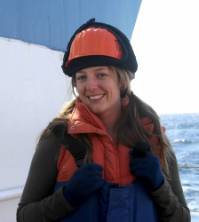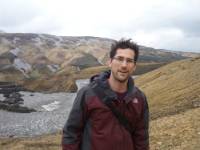What do you study at the Museum?
I study string jellyfish, or siphonophores, which are very delicate deep sea species that pass their whole life cycle in the plankton, and are not normally found anywhere near the shore because of turbulence.
The only jellyfish that lives on the surface of the water is the Physalia - also known as the Portuguese man of war. Once it has matured it has a massive float which means it cannot sink below the water.
What are you most excited about finding/seeing on the trip?
Rarely collected species of siphonophores from the Tongue of the Ocean - several new species were described from the area in the 1980s to 1990s - but have not been found since. I have only ever seen about 2 live siphonophores in my life, as I work on preserved material, so anything will be exciting for me.
What do you miss the most when you go on field work?
Probably my husband, who will be at home whilst I’m in the Bahamas. This trip is a first for me because I am a non-funded Scientific Associate in the Museum, and just do my research for fun, not money! This is the first time I’ve ever been offered a place on a Museum expedition, so I am very excited to be going, and grateful for being invited to participate.





